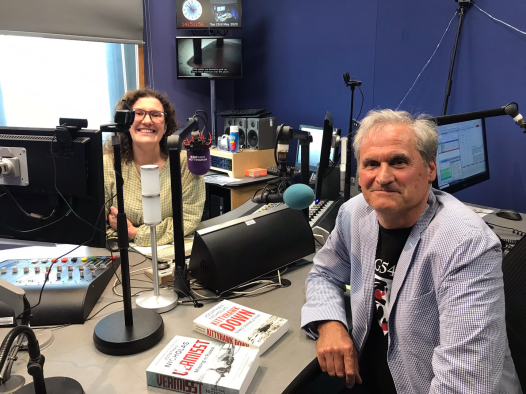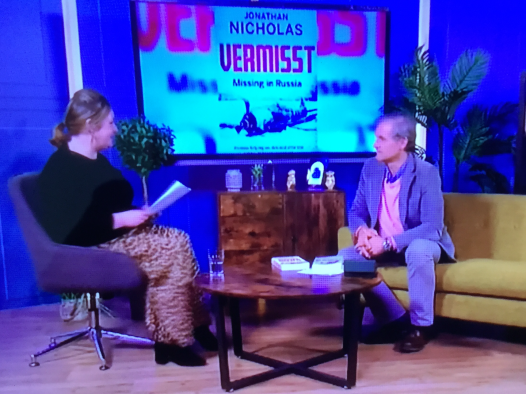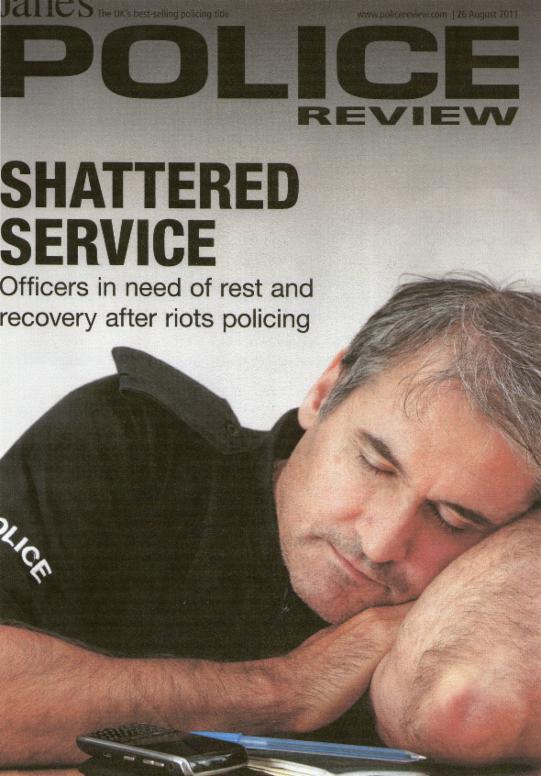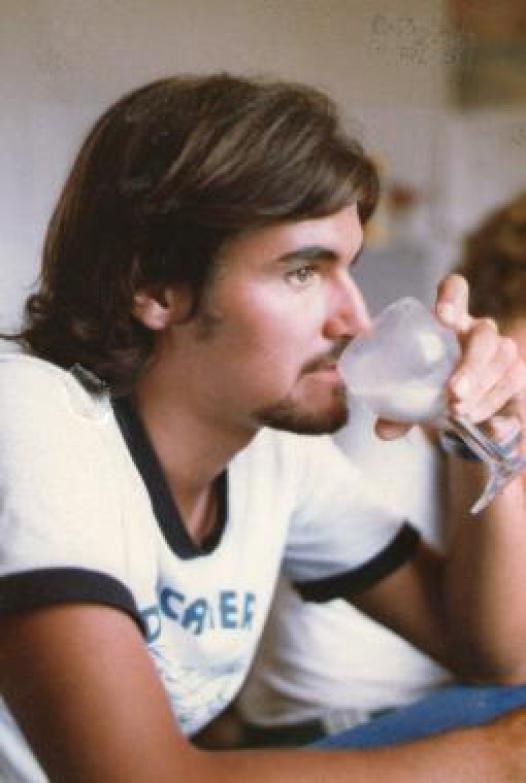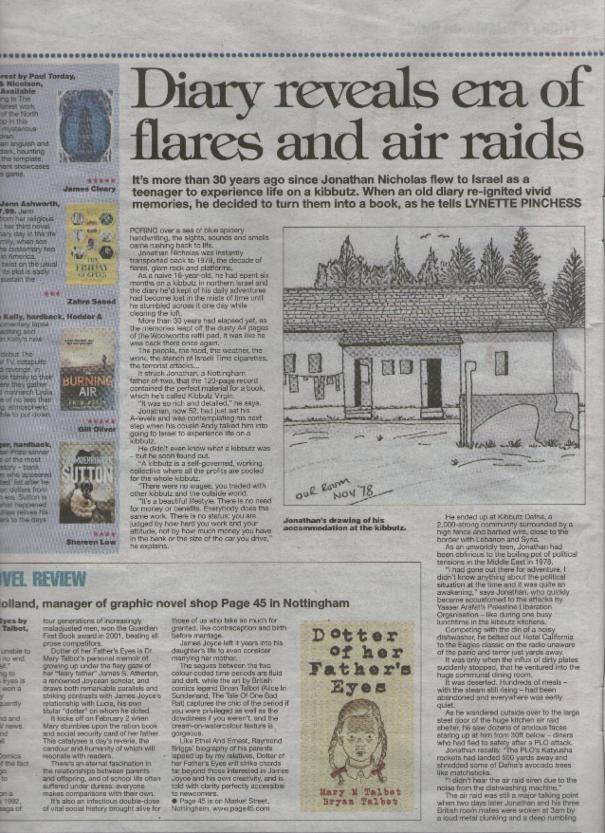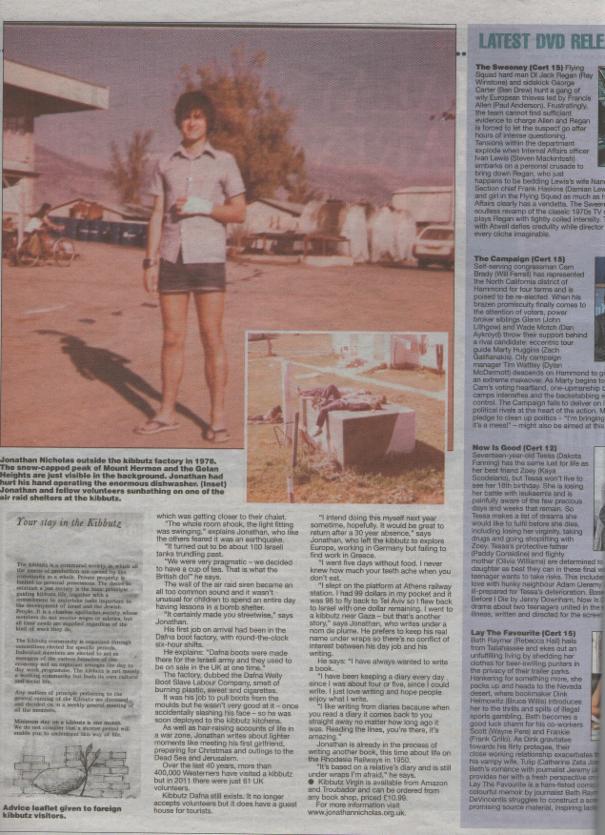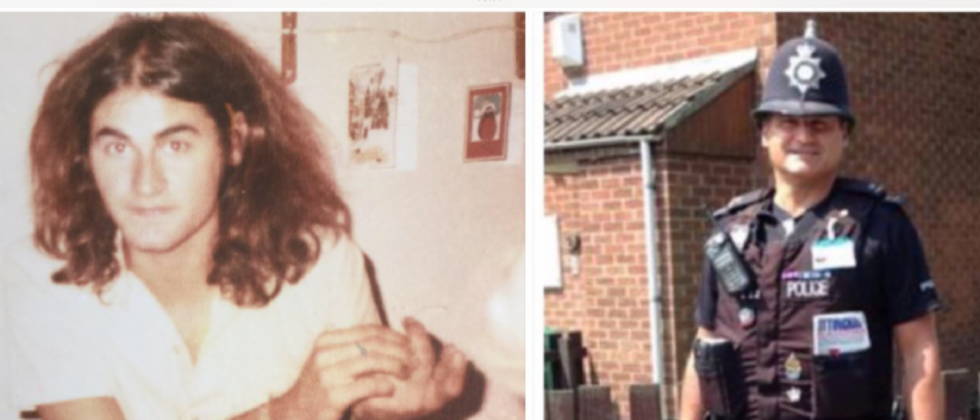
With Verity Cowley at the BBC discussing my latest aviation novels, 'Kittyhawk Down' and 'Vermisst - Missing in Russia.' Thanks to BBC Radio Nottingham.
As I said to Verity, I can talk for hours about aeroplanes, flying, writing, and books, any time!
On the telly discussing 'Vermisst - Missing in Russia', my latest WW2 novel about a German fighter pilot on the Eastern Front. Thanks to Notts TV
I thoroughly enjoyed talking about my writing... try to stop me!
Above: Nottingham's 'NG' Magazine; details of my two non fiction books describing my thirty year police career.
November 2015:
A voice-over link that remained on the CBS Reality channel for several years.
October 2015:
Several appearances on CBS Reality TV describing some of the incidents & experiences in my police career, all of which are described in detail in my books 'Hospital Beat' and 'Who'd be a copper?'. Short pieces between programmes called 'This is my reality' which included other emergency service workers such as firemen, RNLI volunteers, and ambulance paramedics.
'Writing Magazine' UK featured author, June 2014:
'Police Review', August 2011. I was a columnist for them when they needed a photo of a cop who looked 'tired and fed up', so I volunteered immediately!
www.wikiwormmagazine.com
The Tragic Romance of Africa
by Jonathan Nicholas & Dennis Hubbard
by Jonathan Nicholas & Dennis Hubbard
January 2014
Book Feature
Dennis was a naïve working class twenty-one year old Yorkshire lad when he left the cold dark streets of the Manor Estate in Sheffield to seek his fortune in Africa. It was 22nd November 1950. He was a naturally adventurous youth who’d grown up amid the death and destruction of the Blitz when German bombs rained down on his home city, and he was not afraid to try his hand at anything.
When he was offered a job working in the depths of tropical Africa he left his girlfriend behind and sailed to Cape Town.
When he was offered a job working in the depths of tropical Africa he left his girlfriend behind and sailed to Cape Town.
His two week journey to Africa didn’t start well when he was befriended by a well-spoken but unscrupulous character at Waterloo station, but then he met his best friend to be, and fellow railway employee, Fred Leach. This was when his adventures began. When they arrived in Africa Dennis and Fred travelled together on a very unpleasant but eventful five day train journey north into the African interior, through the eastern Kalahari Desert, passing the Victoria Falls and finally reaching a remote mining town called Broken Hill (now known as Kabwe, in Zambia). This small settlement was surrounded by the vast but beautiful emptiness of the African savannah, and would be Dennis’s home for the next two years.
Dennis started his new job working for the Rhodesia Railways overseeing the safe transportation from the Copper Belt of thousands of tons of minerals by rail south for export. He also took a part time job working behind the bar at the Broken Hill Railway Recreation Club and was shocked to witness first-hand the excessive drinking which was far worse and much more problematic than any modern day binge-drinking. Dennis and Fred were recruited into the local Afrikaner Police Reserve and Dennis was forced to make an armed arrest of a local African man, which didn’t go quite to plan. Fred’s experience with the local police was worse still, when the severed head of a black African woman was carried into the police station by her husband.
Together with his friend and house-mate Fred, with an insatiable thirst for adventure Dennis immediately began exploring the African countryside first on a pedal cycle and then a small car, a ‘Flying Eight’. They drove further into the bush on rough and largely uncharted dirt tracks until they found what would become their favourite place of all: Mulungushi Dam.
They paddled a kayak on the magnificent gin-clear water of the ten-mile lake and fought with a very lively crocodile which was audacious enough to steal their catch from them when they were fishing! They befriended some native Africans in a nearby village contrary to advice from work colleagues and friends not to fraternize with the local black population. Dennis was shocked to see segregation and subjugation of the native Africans and repeatedly ignored such advice.
They paddled a kayak on the magnificent gin-clear water of the ten-mile lake and fought with a very lively crocodile which was audacious enough to steal their catch from them when they were fishing! They befriended some native Africans in a nearby village contrary to advice from work colleagues and friends not to fraternize with the local black population. Dennis was shocked to see segregation and subjugation of the native Africans and repeatedly ignored such advice.
Dennis and Fred were given permanent loan of two powerful semi-automatic hunting rifles and an endless supply of ammunition. Target practice with tin cans in the bush inevitably turned into a simple matter of survival when they were forced to shoot a charging animal as they were exploring the area around the dam. They frequently had other very close encounters with the wonderful wildlife in the bush, and an attempt at night shooting ended in disaster when they both became the hunted instead of the hunters!
Dennis played cricket and football and was chosen to play in a football team which toured parts of the neighbouring Congo, where the very lively crowd of local Africans almost rioted in the afternoon heat when their team started losing.
Dennis and Fred became very close and were eventually completely absorbed into the Broken Hill community. Inevitably, living as they were, far from home in the relentless African heat, they each became involved in their own fateful romance that would ultimately lead to some truly shocking and tragic consequences.
This is an often hilarious, occasionally touching, sometimes moving, but ultimately harrowing true story of one young man’s adventures in 1950’s Africa, a bygone age of colonialism, racism, exploitation and adventure. It is such a unique and interesting story that the reader is bound to keep asking one question: ‘Is this really a true story?’ It is all perfectly true. This is the tragic romance of Africa.
For more information please visit:
www.jonathannicholas.org.uk
www.jonathannicholas.org.uk
Purchase the book at Amazon
www.wikiwormmagazine.com
User Rating: / 2
Details:Hits: 196
Jonathan was a very naïve eighteen-year-old who had just finished his ‘A’- levels. His cousin, Andy, suggested the two of them fly to Israel in order to experience life on a kibbutz as a ‘volunteer’. Jonathan had never even heard of the word ‘kibbutz’.
He knew very little about Israel. However, he agreed to take part in the adventure, and made the necessary arrangements. He travelled to Leeds from his home city of Sheffield, to be interviewed by a vibrant and charismatic Israeli by the name of Ori. Jonathan was puzzled by some valedictory advice Ori gave him, which sounded vaguely like a warning: “The kibbutz will change your life, Jonathan. You do know this?”
It was a cold afternoon in a typically bleak and dismal November when he left England. He travelled alone to Israel, with just a small rucksack containing a change of clothing, a sleeping bag, a pen, and a diary. He wrote an account of the adventure in the diary every day.
A warm sun in a wide azure sky greeted him in Tel Aviv. He negotiated his way across the city via a chaotic Central Bus Station, and found the Kibbutz Office in Soutine Street. A tall and rakishly thin woman with dark brown leathery skin helped him select a kibbutz from hundreds of others dotted across a very tired, nicotine-stained map on the wall. She chain-smoked Israeli ‘Time’ cigarettes, the unique smell of which became the ubiquitous odour of Israel. He chose to stay at a kibbutz in Israel’s far north, right on the border with Lebanon.
Jonathan finally arrived at a fortified settlement in the Upper Galilee, surrounded by a high fence and rolls of barbed wire, called Kibbutz Dafna. It was nestled at the top of the Hula Valley, in the shadow of the spectacular snow-capped peak of Mount Hermon in the Golan Heights. He was allocated a thin, iron-framed bed under a window in a small, filthy room with three other English men. They shared the accommodation with colonies of ants and fast-running cockroaches. Jonathan’s first impressions were not promising. The food was awful. He had absolutely nothing in common with anyone at the kibbutz. He was set to work on night shifts in a bleak factory, on some dangerous and arcane machinery. He’d never worked in a factory before. He’d never worked shifts before. He hated it. He struggled with the physically demanding and unpleasant work, and was hopeless at it. He realised he had set himself a target of staying there for six months. This seemed an awful prospect.
Unable to face the ignominy and embarrassment of running home in the first week, he decided he must do his best, and try to overcome adversity. The Israelis could see how he struggled in his first job at the factory, so they gave him an easier role. He made determined efforts to make friends and get to know firstly his room-mates, and then the other volunteers. There were thirty one other volunteers on the kibbutz from all over the world. He was taken fishing by a room-mate called Graham, and he spent a wonderful afternoon swimming and sunbathing. The weather was fantastic. It was sunny and warm every day. He caught ‘Dafna Belly’, and had to remain close to a toilet for several days. He managed, however, to avoid another common and curious kibbutz ailment called ‘Scrot-rot’, the cure for which meant a trip to the kibbutz clinic for an injection of penicillin.
Jonathan started smoking cigarettes for the first time. He also tried numerous other things he’d never experienced before such as hitch-hiking. He caught lifts into the nearest town with his room-mates, to a bar which sold local beer in large pint glasses. He became acquainted with other volunteers and characters such as ‘Sick Mick’ who had a radio that picked up the BBC World Service better than any other. Saturday afternoons were then spent crowding into Mick’s room in order to listen to the football results from England. Jonathan changed jobs again, and started work on a huge dishwashing machine in the communal dining room. He was trained in its use by a punctilious New Yorker called Perry, a diminutive but enthusiastic man, who was generous with his time and energy. Very gradually Jonathan settled into the slower pace and unique way of life on Kibbutz Dafna. There were no bills to pay, no errands to run, no shopping to do, and no need for money. There were no real worries of any kind. He was living a life similar to the happy but ineffectual ‘Eloi’ in H.G. Well’s ‘The Time Machine’. Where were the ‘Morlocks’ to create a balance in the order of things?
Suddenly, during a lunch time shift while working the enormous and very noisy dishwashing machine, Jonathan’s customers seemed to have stopped putting their dirty plates into the machine. After several minutes he turned off the dishwasher and decided to investigate. Hundreds of meals had been abandoned in the huge dining room. All was eerily quiet and everyone had vanished. He wandered through the kitchens and out the building. He walked up to the steel door of the huge kitchen miklat (air raid shelter) to see dozens of anxious faces staring back up at him from thirty feet below. Dafna was undergoing an air raid. It was the first of many.
The PLO’s Katyusha rockets had landed five hundred yards away and shredded some of Dafna’s avocado trees like matchsticks. These were anti-personnel munitions designed to explode into thousands of sharp, red hot fragments. Jonathan didn’t hear the air raid siren due to the noise from the dishwashing machine.
A few nights later he was woken up at three in the morning along with his other room-mates. The windows in the room rattled in their ill-fitting frames like bees in a biscuit tin, and the single sixty-watt bulb hanging from the ceiling vibrated and trembled like the fingers of a condemned man. A deep, clangourous rumbling sound approached the kibbutz. Eventually they saw in the darkness, dozens of Israeli ‘Magach’ tanks appear along the road. They trundled past, close to the kibbutz, heading up into the nearby Golan Heights in reply to the recent rocket attack.
There were days off work, and free time after work. Jonathan swam in a nearby waterfall which was a source of the River Jordan, and wandered across a Lebanese minefield, all in one day. Local Jewish festivals were celebrated, with Hanukkah running parallel to Christmas in 1978.
One morning at six-thirty, the local town, Kiryat Shmona, was attacked with Katyusha rockets. The walls shook and the windows rattled again. Jonathan and his room-mates listened anxiously, and hoped the abrupt, threatening and unconscionable explosions remained at a safe distance. Jonathan realised the chances of a direct hit on their room was slim. But it was a possibility. This was a humble, yet very real glimpse of a coping strategy for life in a war-zone. All the children of the kibbutz spent the entire day in the air raid shelters, along with most of the adults, except the volunteers. Jonathan jumped on the back of Mick’s tractor and helped cut down a stone pine from the fields to use as a Christmas tree. Israeli tanks could be heard in the Golan hills firing constantly for an hour into Lebanon.
Jonathan found love and romance with a beautiful American girl from Seattle called Chrissie, and they moved into a small blast-proof room together. There was an organized kibbutz trip to the south of the country. The author describes climbing the ancient mountain fortress of Masada, overlooking the Dead Sea, where, in 72 A.D. all 960 men, women and children slaughtered one another in preference to being captured alive by the Romans. He describes the sensation of trying to swim in the Dead Sea, and then further south snorkelling over the beautiful but dangerous coral in the blood-warm Red Sea. The only accommodation available in the Sinai at that time was a wooden shack made from driftwood and palm leaves, rented from local Bedouin for two dollars a night.
The kibbutz bus then climbed the Judean Hills and Jerusalem was visited. Jonathan describes a guided walk along the Via Dolorosa, the ancient street leading to the Church of the Holy Sepulchre, where Christ was crucified. He then describes a tour of the ‘Dome of the Rock’ where the Prophet Mohammed made his night-time ascendency to heaven. Jonathan describes writing a short note in the form of a wish, and placing it into a crack between the huge bricks of the Western Wall. Israeli soldiers looked incongruous among the ancient streets of the Old City, dressed in their olive green uniforms and carrying modern weapons. It was a timeless and historic place. At any moment it seemed a youthful and athletic Charlton Heston might ride by in his magnificent four-horse chariot.
The kibbutz bus then climbed the Judean Hills and Jerusalem was visited. Jonathan describes a guided walk along the Via Dolorosa, the ancient street leading to the Church of the Holy Sepulchre, where Christ was crucified. He then describes a tour of the ‘Dome of the Rock’ where the Prophet Mohammed made his night-time ascendency to heaven. Jonathan describes writing a short note in the form of a wish, and placing it into a crack between the huge bricks of the Western Wall. Israeli soldiers looked incongruous among the ancient streets of the Old City, dressed in their olive green uniforms and carrying modern weapons. It was a timeless and historic place. At any moment it seemed a youthful and athletic Charlton Heston might ride by in his magnificent four-horse chariot.
Jonathan’s girlfriend left the kibbutz, and the romance ended abruptly and painfully. There was another kibbutz trip, this time around the Golan Heights, along the highly sensitive border with Syria. There were more air raids which caused everyone to flee underground several times in one day. The author describes his first encounter with illegal drugs, and finally his departure from the kibbutz after six months. He also describes the culture shock of his return home, and just how prescient Ori’s final words to him had been, at the interview in Leeds.
www
www.sharnoffsglobalnews.com
Original commentary by internationals for Americans
Kibbutz life involves several hundred people who work together for the benefit of the community as a whole and all profits are shared.
The kibbutz could be quite industrial and have one or more factories on site, or it could be purely agricultural, or even a mixture of both. Most kibbutzim employ foreign workers known as volunteers who work alongside the members of the kibbutz for no pay.
In exchange for six hours work, six days a week, the kibbutz provides everything the volunteer needs, including a small subsistence allowance for the purchase of cigarettes and alcohol from the kibbutz shop. The volunteer has no bills to pay, no requirement for money, or any need to wonder where the next meal will be coming from. Life on a kibbutz can therefore become quite ideal as a result.
Each kibbutz is literally surrounded by a high fence and the main gates are closed at night, so there is a very safe, village community feel to life. It is a quiet, relatively stress-free existence, with a very slow pace of life compared to the rest of the outside world. In the last 50 years 400,000 people from around the world, most of them non-Jews, have worked on a kibbutz in Israel.
The majority of them left as I did with some very fond memories of kibbutz life and Israel in general. As a result of this Israel will therefore no doubt have a significant number of friends from across the globe who maintain a particular affection for the country.
The kibbutz could be quite industrial and have one or more factories on site, or it could be purely agricultural, or even a mixture of both. Most kibbutzim employ foreign workers known as volunteers who work alongside the members of the kibbutz for no pay.
In exchange for six hours work, six days a week, the kibbutz provides everything the volunteer needs, including a small subsistence allowance for the purchase of cigarettes and alcohol from the kibbutz shop. The volunteer has no bills to pay, no requirement for money, or any need to wonder where the next meal will be coming from. Life on a kibbutz can therefore become quite ideal as a result.
Each kibbutz is literally surrounded by a high fence and the main gates are closed at night, so there is a very safe, village community feel to life. It is a quiet, relatively stress-free existence, with a very slow pace of life compared to the rest of the outside world. In the last 50 years 400,000 people from around the world, most of them non-Jews, have worked on a kibbutz in Israel.
The majority of them left as I did with some very fond memories of kibbutz life and Israel in general. As a result of this Israel will therefore no doubt have a significant number of friends from across the globe who maintain a particular affection for the country.
Jonathan Nicholas was born in England but left the country when he was eighteen years old and spent five years traveling around Europe, the Middle East, Australia and New Zealand. He is now an established travel writer and one of his books, Kibbutz Virgin, describes in detail his time spent living and working on a kibbutz in Israel.
Sheffield Telegraph:
Above: Nottingham's'NG' Magazine
Below: The Nottingham Post Weekend Book section, 19th Jan 2013:
